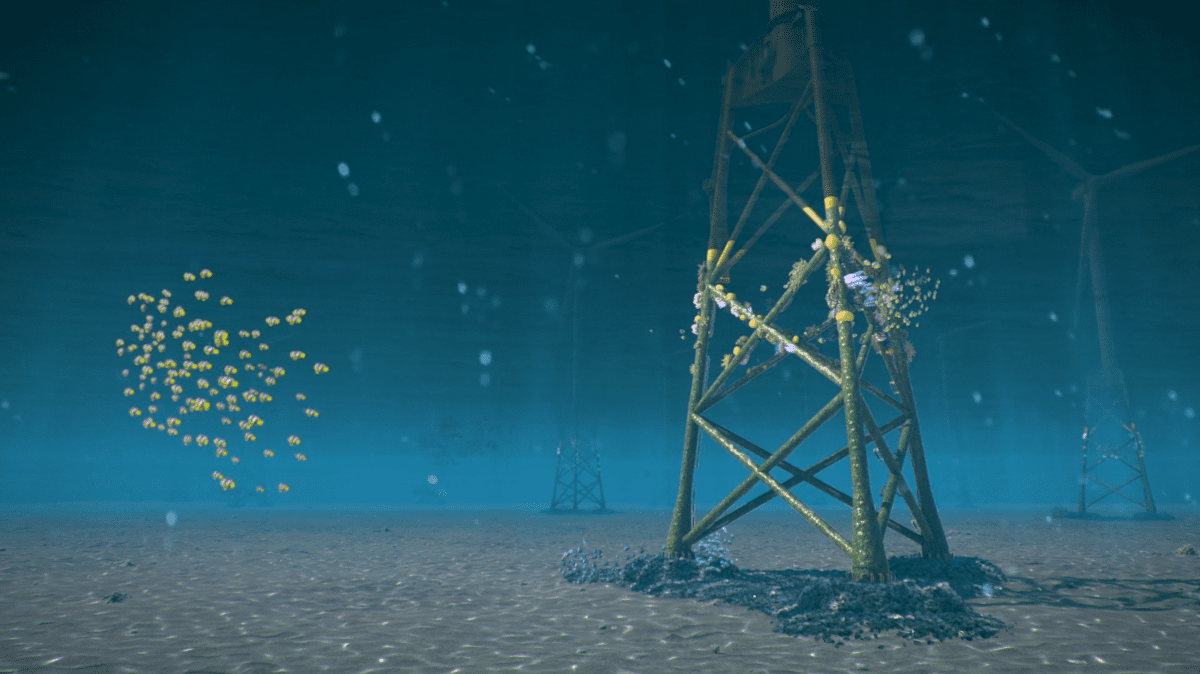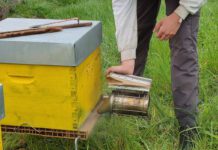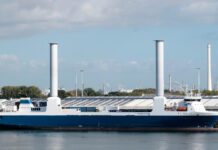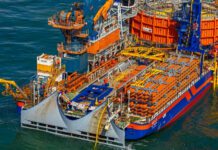
An attempt to support coral reefs by growing corals on offshore wind turbine foundations is underway with Danish green energy firm Ørsted.
Together with Taiwanese partners, the company will test the concept in the tropical waters of Taiwan this summer. The project aims to determine the viability of the initiative and to evaluate the potential positive biodiversity impact of scaling up the initiative.
According to the UN Environment Programme, coral reefs provide habitat for an estimated 32% of all marine species and benefit 1 billion people worldwide, directly or indirectly. But global warming is increasing sea surface temperatures, which can create a bleaching effect that threatens the survival of tropical coral reef ecosystems, adding to the global biodiversity crisis.
Climate change is becoming the biggest driver of biodiversity loss, and a substantial expansion of offshore wind is central to tackling these interlinked crises. Governments are planning a significant build-out of green energy infrastructure at sea, and if done right, as the firm puts it, “the expansion of offshore wind energy needed to fight climate change can also integrate solutions that support and enhance ocean biodiversity”.
The project, ReCoral, presents one possible way of going about this, suggests Ørsted. It aims to implement a non-invasive approach for collecting surplus indigenous coral spawn as it washes ashore and for growing healthy coral colonies on the foundations of nearby offshore wind turbines.
The idea
Increased surface temperatures in shallow waters can lead to coral bleaching. At offshore wind farm locations further offshore, temperatures are more stable due to vertical mixing in the water column, preventing extreme temperature increases.
The idea behind ReCoral is that the relatively stable water temperatures at offshore wind farm locations will limit the risk of coral bleaching and allow healthy corals to grow on wind turbine foundations. Corals will be grown close to the water’s surface to ensure sufficient sunlight.
In 2020, biologists and marine specialists in Ørsted teamed up with private and academic coral experts to mature and test the concept. In 2021, the ReCoral team successfully grew juvenile corals on underwater steel and concrete substrates at a quayside test facility for the first time.
In June this year, the offshore proof-of-concept trial will begin at the Greater Changhua offshore wind farms in Taiwan to test the concept in open waters on four separate wind turbine foundations.
Mads Nipper, Group President and CEO of Ørsted, said: “To halt climate change and create a sustainable future for the planet, its ecosystems, and its people, we must speed up the transition from fossil fuels to renewables. Governments are preparing a significant expansion of offshore wind energy, and I’m confident that if done right, the offshore wind build-out can support and enhance ocean biodiversity.” He continues: “If we succeed with ReCoral and the concept proves to be scalable, this Ørsted innovation could create a significant positive impact on ocean biodiversity.”
Working with coral experts
Ørsted collaborates with the Penghu Marine Biology Research Center in Taiwan, and together they have developed a non-invasive methodology for coral seeding, in vitro fertilisation, larvae transport, and larvae attachment to wind turbine foundations. Rather than removing anything from existing coral ecosystems, ReCoral’s non-invasive approach relies on the collection of surplus coral egg bundles that wash up on shorelines and would not otherwise survive.
If the proof-of-concept trial is successful, Ørsted says it will explore opportunities for scaling up the initiative, with the ultimate aim of using additional coral larvae generated at offshore wind farm locations to restore and enhance threatened near-shore reef systems.
The ReCoral concept could be applied to offshore foundations of any kind in tropical waters around the world. Ørsted will share learnings and the techniques the ReCoral team develops with the broader coral conservation community, and with other wind farm developers, expecting that the findings will be useful regardless of whether the ReCoral pilot succeeds.
Net-positive biodiversity impact is Ørsted’s declared ambition for all renewable energy projects the company commissions from 2030 at the latest. The designated implies a measurable contribution that improves biodiversity overall and leaves nature as a whole in better shape than before. Unavoidable impacts are minimised and mitigated, and active steps are taken beyond this to enhance biodiversity and repair ecosystems currently under threat from both the crises of climate and biodiversity.
To learn more about the ReCoral method, visit https://orsted.com/sustainability/our-priorities/nature/recoral.







